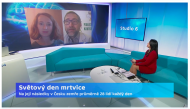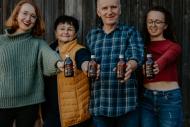People
I forgot twenty years of my life, but I was given a second chance – the graduate of FBM of BUT says after
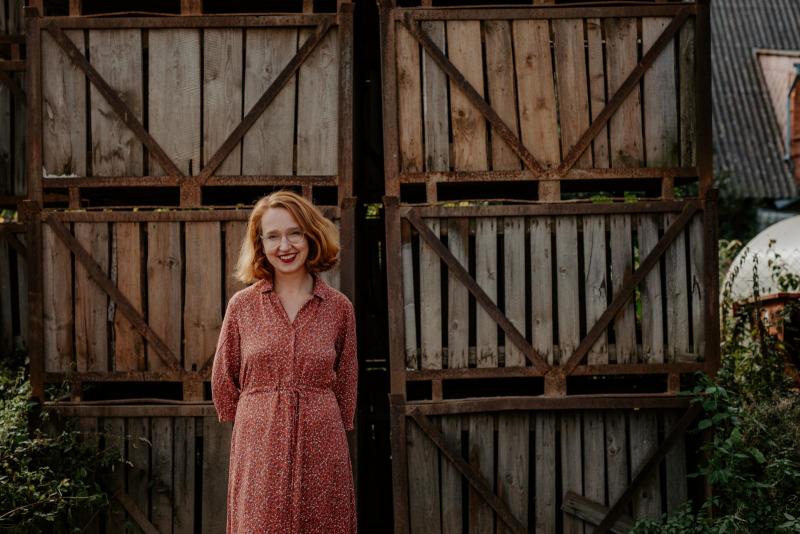
Minutes play a role in a cerebrovascular accident - the faster a person gets to the hospital, the lower the risk of death or permanent consequences. Eliška Nováková was taken to the operation hall only after 9 hours. "I didn't move and I didn't speak. The doctors told my parents that I would just lay and roll my eyes. But mom brought a syllabary and we started from the beginning," the graduate of FBM of BUT recalls of the first weeks after the cerebrovascular accident. Already in the hospital, she was able to stand on her own two feet, a year after the event she crossed Mala Fatra and then successfully graduated with a bachelor's degree. She also writes a blog about her "second" life with a handicap.
Do you remember the day you had your cerebrovascular accident 9 years ago?
Sketchy. It was nine o'clock in the morning and I was alone in the student apartment. I hit the table, fell to the floor and started crying. Then I have memory lapses. I found myself in front of the house without the keys. That's why I went to school after my roommates, then I was studying at Mendel University. It was about a kilometre away and I don't understand how I managed to walk it. I was wandering around on the way, it probably looked like I was coming after a party. The symptoms of drunkenness and cerebrovascular accident are similar - drooping corner, poor articulation, confusion and stumbling. I waited at the school for the girls from the apartment and tried to explain the situation to them, but I couldn't speak. They escorted me home and I wanted to sleep through it all.
You didn't want to go to the hospital?
Not at first. I had health problems half a year before the cerebrovascular accident. I suffered from joint pain, stomach pain and fever. But the doctors always sent me home saying that I was practically healthy. And that's how I started to think. I didn't want to go to the hospital to be told again that I was fine. But the girls still called an ambulance, it was already about two o'clock in the afternoon. They didn't behave properly in the ambulance. They thought I was drunk and that they would take me from the hospital to detention anyway. Having a cerebrovascular accident in your twenties is not common, so paramedics didn't recognize the symptoms. A cerebrovascular accident is a matter of minutes – thousands of brain cells die every minute. I finally got to the hall at six o'clock in the evening. Nine hours after the incident, which is a complete disaster.
So, what happened in the operating room?
The doctors were wondering if they should open my head. But I would have an even bigger handicap. So, they decided to insert a probe through the groin and dissolve the clot in the artery. It took, but it was too late and it left lifelong effects. And that was just the beginning. After 14 days, they finally found out what caused the cerebrovascular accident. I had clot-forming bacteria on my heart that travelled through my body and lodged in an artery. A demanding operation awaited me, when they cut open my chest, connected me to extracorporeal circulation and treated my heart. I wasn't allowed to move for three days after the operation to allow the bones to fuse well. If I didn't have the surgery, I was in danger of having a second cerebrovascular accident soon. That would be fatal.
How long did you have to stay in the hospital and in what condition?
About two months. I didn't speak and the doctors said I would just lay there and roll my eyes. What I have learned in twenty years of life, I have forgotten. But mom brought a syllabary and started teaching me the language. Already in the hospital I stood on my own two feet and took a few steps. Then I went to different hospitals, visited physiotherapy, rehabilitation and speech therapists. I entered the first spa at the level of a kindergarten child and left it as a ninth grader. I only learned to speak properly at university, when I started studying at the Faculty of Business and Management at BUT.
How did you manage to get into university in such a state?
I told myself then that the spa was enough and that I wanted to be like my peers. The friends who continued to be friends with me and completed their bachelors and engineering degrees helped me a lot. No one really believed that I could get into university. But they didn't discourage me because I was using my brain, which is important after a cerebrovascular accident. I didn't get anywhere the first year, even though I studied a lot. It only happened the second time, when I applied to the Faculty of Business and Management at BUT through the programme for the handicapped.
The Alfons centre helped me a lot then. I was slower - when my classmates finished the test, I was halfway through. That's why I got more time for exams. I had an individual plan, consultations with a psychologist and the help of a proofreader who edited my essays. I have already learned to write a little, but I did not put the sentences together grammatically correctly.
Have you ever felt like giving up?
At all. I went from one grade to another until I was before state exams. The cerebrovascular accident affected not only my movement centre in the brain, but also my emotional centre. I haven't felt fear or worry like that in a long time. I was surrounded by people who gave me a chance. They were cheerful and acted as if nothing had happened. I entered my second life laughing. I was walking in the forest at three in the morning and I thought to myself, what can people be afraid of?
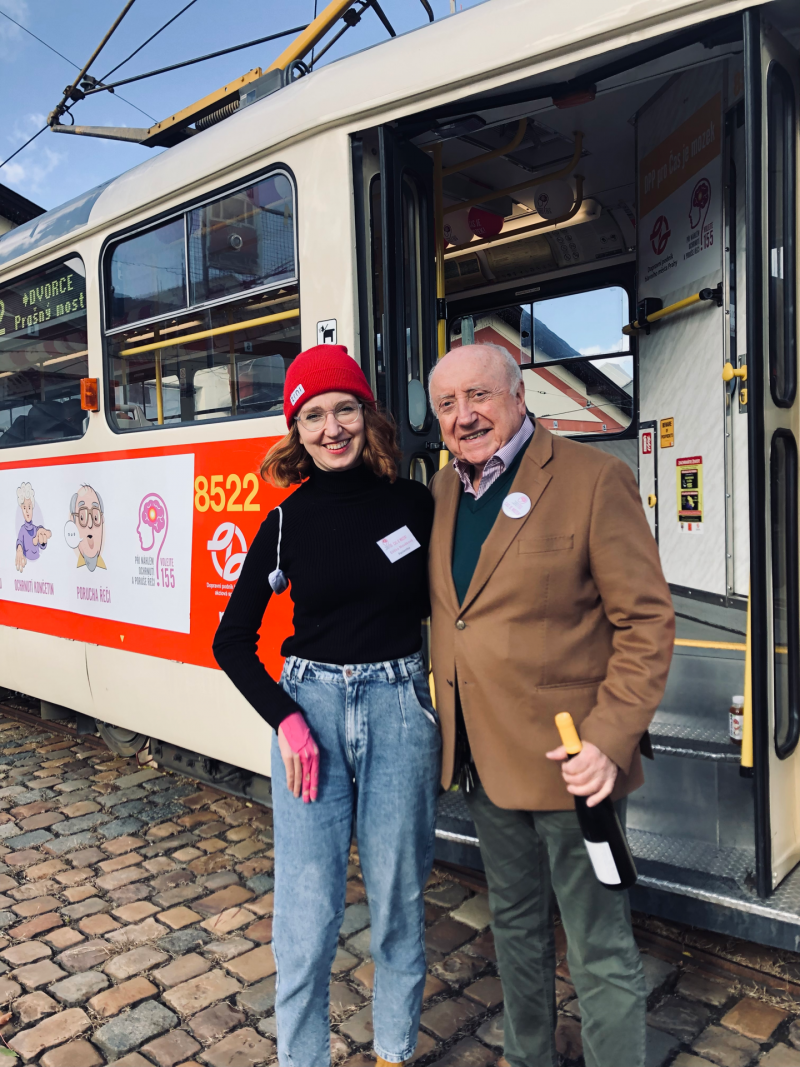
What other effects did the cerebrovascular accident leave behind?
I am handicapped - I have limited motor skills in my hand, I have difficulty controlling my leg and I have a deviated half of my body. I'm slower to express myself, I get exhausted faster and I have to exercise daily to stay in shape. But I have come a long way and gradually my physical and mental condition has improved. Already a year after the cerebrovascular accident, I managed to cross Mala Fatra, despite the fact that the doctors at the hospital thought I would never get up again.
What was it like with such a physical handicap?
Difficult. But as my emotional centre was damaged, I didn't realize how terrible it could be. I was dragging my leg behind me a bit and half of my body was collapsed at the time. Towards the end, my friends had to carry my backpack. When we went down the hill, I kept falling because my leg started to break. My friends made fun of me - let me stop falling and not draw attention to myself. After all, they know that I am handicapped. Their support and humour helped me a lot. At the end of the trip, everyone was holding me on one side and reassuring me. We made it together.
So, would you go to Mala Fatra again?
Definitely not. My emotional centre has gradually recovered since then, so the idea terrifies me. But I am very grateful for my friends. They took me everywhere, we made fun of my handicap, and that helped me a lot. I didn't feel singled out because of my disability, which I encountered in reality.
Is that why you started writing the blog Girl with a Handicap about life with a handicap?
Yes. After my studies, I went to volunteer abroad for a while to learn English again. I came back just before they closed the borders due to covid. I was stuck at home and realized there wasn't much written about life after a cerebrovascular accident. And so, I decided to show my story and prove that even a disabled person can live a full life.
Handicapped and non-handicapped people do not know how to communicate with each other. I want to let people see under the hood. We are completely normal people and there is no need to always help us with something and offer help. If I need help, I'll ask for it. On the blog, I also write about Czech educational events that increase awareness of cerebrovascular accident. The blog has been running for three years and is now read by 4,500 people a month.
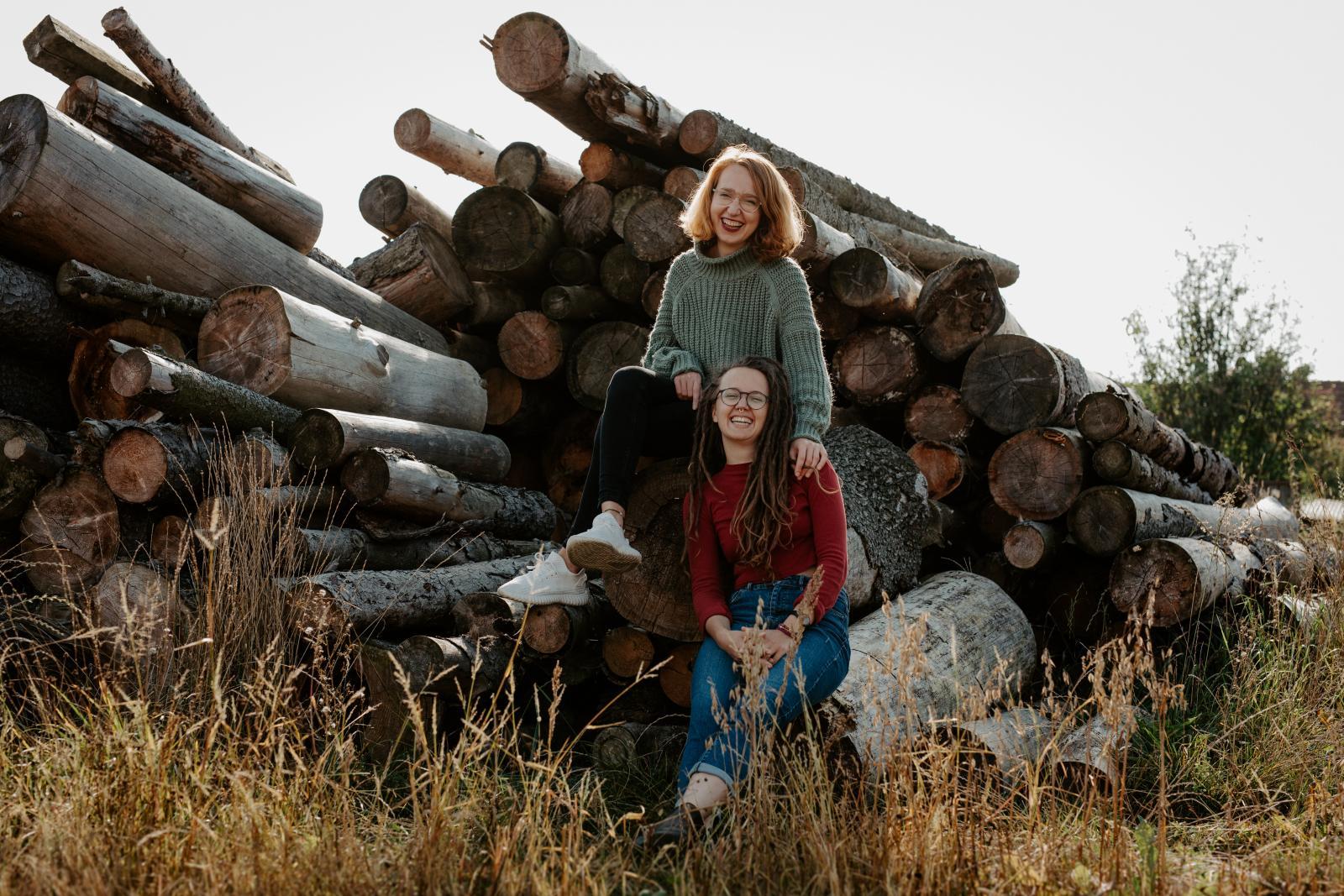
How did you manage to find a job after finishing school?
Poorly. They always help you at school, but then you're on your own. They didn't even want to take me to hand out flyers in the supermarket because I'm too slow. And then one day dad asked if we were going to expand the business. We founded the company From the Barn (Ze stodoly) and cold press oils. I've been running it for the fourth year and my lifelong dream has come true - I'm doing exactly what I wanted and graduated from. However, I want to improve the situation of disabled people on the labour market, which is why I am co-founding the JE TO OK foundation. It will help people with disabilities to get a full-fledged job.
Is your life better in any way after what happened to you?
I have lost most of my memories, so I have no comparison with my life before. But I thought I would try to make the most of it. I am satisfied with my life. Even though I know I have to go to physical therapy, my body stops serving me much sooner and I can't do the same things as healthy people. But I got a second chance
Majáles returns after 2 years, royal candidates from BUT are ready to fight
The reversible clothing from Flipky can be worn in the city or in the mountains. It saves the environment and your wallet
ARGO underwater: Prototype of student submarine on display at IDET Fair
Graduates of BUT are contributing to a revolution in logistics. They are preparing infrastructure of delivery of parcels by drones
I still need a driving engine in my life, the former rugby player who today competes in bobsleigh says
